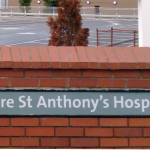Handy tips for journalists reporting on NHS stories
The standard of reporting on stories in the mainstream British media about the NHS is frequently lazy, inaccurate, incomplete or just poor. We received a terrific response to our blog post on 1 September about the terrible reporting across multiple media outlets on personal health budgets. We do not expect the standard of reporting on NHS stories to improve any time soon so we have put together some helpful tips for journalists who report on the NHS.
1. "NHS bosses" is a lazy term constantly used by journalists. While the term is OK for a headline where space is tight and the attention of readers needs to be grabbed, it is too vague for proper reporting. Within a report, the journalist should always clarify exactly who the "NHS bosses" are. Do they mean hospital trusts? Clinical commissioning groups? Simon Stevens? Jeremy Hunt? Chances are, the reporter is referring to either trusts or CCGs. This needs to be made clear from the outset.
2. When reporters for national newspapers and news channels are referring to trusts and CCGs when they talk of "NHS bosses", it needs to be made clear that these bodies make different decisions in different areas. The way stories such as the personal health budgets funding "treats" and the NHS funding gluten-free food were reported in recent weeks seldom made it clear that these funding decisions vary wildly between areas. Instead, we ended up with a warped narrative that made it sound like the NHS was morphing into a giant, nationwide hybrid of Greggs and Butlins.
3. It is important that readers and viewers are aware of what CCGs actually are. As NHS campaigners, we need to keep in mind that not everyone understands what a CCG is or the powers they have to make massive decisions about our vital health services - they are making decisions on everything from gluten-free food and IVF to hospital cuts and closures.
4. We realise that it can be hard to explain what a CCG is in every single media report. However, for journalists whose work appears online, it is easy to provide links to pages that can explain what CCGs are. Despite the limitations of broadcast time or space in print media, even a brief one-liner to explain CCGs would be helpful.
5. CCGs are just one outcome of the Health and Social Care Act 2012. If you are reporting on the NHS, you have the responsibility of reading this act as it has shaped the NHS as we know it today. If you are interviewing an MP who voted for this act, ask them if they regret voting for the act. Ask them if they take responsibility for any negative outcomes that can be directly attributed to this act.
6. When you are reporting about something that has gone wrong in the NHS, it should not be used as a stick with which to beat the entire NHS or a rallying cry to close down entire hospitals. When something goes wrong, it should be an opportunity for improvement, for ensuring that "never incidents" never happen again. Find out what trusts and CCGs are doing to make improvements if something goes wrong and hold them to account. If people are killed or injured, they should not be seen as collateral damage, as a reason to cut services.
7. When something goes wrong in the NHS, investigate properly. Find out if any private companies may have been involved. If there is an outbreak of infection in a hospital, for example, find out if the cleaning has been contracted out to the private sector, ask about the cleaning company's training procedures and how well their employees are paid. Is the incident related to staff shortages? Is the trust relying heavily on agency staff? Are patients receiving inconsistent care because of a lack of permanent staff?
8. It is especially important to find out about the extent of private company involvement in the NHS, especially when things go wrong or if CCGs and trusts are spending our money on private management consultancy firms. Unfortunately, private companies are exempt from FOI requests. This makes it hard to properly report on the NHS. This is quite deliberate, a conscious attempt to reduce transparency and keep people unaware.
You can and should make FOI requests of CCGs and trusts in relation to their private sector partners. You might not get a complete answer because of commercial confidentiality, but this should be noted in your report. You should also ask the private companies involved for comment whenever it is relevant and note in your report if they refuse to comment or did not return phonecalls or reply to emails.
9. Attend CCG and trust board meetings, especially if you work in the local media. They are open to the public. They are where big decisions are made and hard questions should be asked. Such meetings are usually held during working hours so it is difficult for many people to attend. The media has a responsibility to attend such meetings and report on what is said. This should be seen by local and regional journalists as being as important as attending council meetings.
10. Find out about vested interests, especially on CCGs. Clinical commissioning groups, as the name suggest, commission services, they spend our money. If CCG members have vested interests in private healthcare providers, they should not be commissioning health services. If you are reporting on a CCG, find out if their declared interests have been published online. If not, call them out on it.
11. Ask local campaigners for comment. We are always happy to talk to the media, may have good information from meetings we have attended, such as CCG meetings, and might offer you perspectives that you had not previously considered.
Does anyone have any more tips for good reporting on the NHS? Please feel free to leave them in the comments section below.
















